Honorary Members
International Society of Posture and Gait Research awards Honorary Memberships to retired researchers, who have made outstanding services to both our scientific discipline and to the society. We greatly appreciate and thank our Honorary Members for their valuable contributions to the field of posture and gait research, and to the society itself.

Prof. Dr. John H J Allum
Basel University Hospital, Received 2017
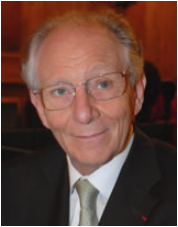
Alain Berthoz
Collège de France/CNRS Paris, Received 2014
Dr. Berthoz is an Engineer and an expert in Biomechanics, Psychology and Neurophysiology. He is a world known specialist in the physiology of the vestibular system and the oculomotor system with a focus on multisensory integration, spatial orientation, locomotion, and spatial memory. He studies pathological deficits in sensory-motor and cognitive functions including psychiatric diseases using motion capture, virtual reality, brain imaging (fMRI) and intracranial recordings methods in humans. He has been at the origin of the technical development of a number of biomedical devices including haptic force-feedback devices, eye movement measurement, and virtual reality. He is currently collaborating with European Projects and with robotics groups in Japan for bio-inspired robotics and humanoids. He is the author of more than 300 papers in International journals and the author of several books among which are: “The Brain’s Sense of Movement” (Harvard Univ Press, 1997); “Emotion and Reason. The cognitive neuroscience of decision making” (Oxford Univ Press, 2000); “Simplexity” ( Yale University Press, 2011).
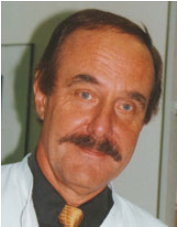
Thomas Brandt
Ludwig-Maximilians-University Munich, Received 2014
Brandt T, Dieterich M and Strupp M (Eds): “Vertigo and Dizziness” – Common Complaints. Springer, London, 2005.
Brandt T, Schautzer F, Hamilton DA, Brüning R, Markowitsch HJ, Kalla R, Darlington C, Smith LP and Strupp M. (2005) “Vestibular loss causes hippocampalatrophy and impaired spatial memory in humans.” Brain 128:2732-2741.
Bronstein AM, Brandt T, Woollacott MH and Nutt JG (Eds): “Clinical Disorders of Balance, Posture and Gait.” Arnold, London, 2nd Ed, 2004.
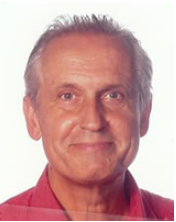
Jacques Duysens
Katholieke Universiteit Leuven, Flanders, Received 2015
Since the Portland meeting in 1992 he has been an active member of ISPGR. He organized the meeting in Maastricht in 2001, resulting in a proceedings book (Duysens, J., Smits-Engelsman, B.C.M., Kingma, H. Control of posture and gait 2001. NPI. 923 pages). Afterwards he was on the ISPGR board for several years.
From 2005-2007 he was professor at the dept. of rehabilitation at the Radboud university of Nijmegen. In 2007 he was appointed full professor in Motor control at FABER in Leuven (Belgium). In oct. 2012 he has retired with emeritus status and with a mission (research) to allow continuing research activities. Part of his current activity is in Brazil where he works with Arturo Forner-Cordero and Felipe Carpes, based on a grant from the National Research Council of Brazil for Research Grant (CNPq 311659/2012-8) and a Visiting Professor Grant (CNPq 400819/2013-9).
He is currently editorial board member on 3 international journals, namely
- Experimental Brain Research
- Gait and Posture
- Motor Control (Section editor)
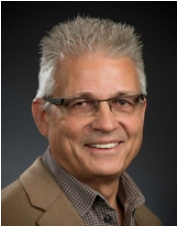
Jim Frank
University of Waterloo, Received 2017

Fay Horak
Balance Disorders Laboratory, Received 2022
Dr. Fay Horak PhD, PT, Co-Director of the Balance Disorders Laboratory, is the Jay Nutt MD Endowed Professor of Neurology and Adjunct Professor of Behavioral Neuroscience & Biomedical Engineering at Oregon Health and Science University. She is also Chief Scientific Officer at APDM Wearable Technology, an ERT company that provides precision movement technology for clinical trials. Dr. Horak is a physical therapist and neuroscientist who is known for her research on the neurophysiology of balance disorders and their rehabilitation. Dr. Horak received a BS degree in Physical Therapy from the U of Wisconsin, a MS in Neurophysiology from the U of Minnesota and a PhD in Neuroscience from the University of Washington in Seattle. She has received many national awards from the American Physical Therapy Association and is the first physical therapist to receive a prestigious MERIT award from the National Institutes of Health for over 30 years of continuous funding. Dr. Horak has over 400 peer-reviewed papers, over 54,000 citations (H-Index 110) and has had over 50 million dollars in federal grants. Dr. Horak also has several patents for new technologies to measure and rehabilitate balance disorders and helped start a small company, APDM, that developed synchronized, wearable sensors to quantify posture and gait. Dr. Horak was the first elected President of ISPGR when she helped to develop the organization’s charter, meeting organization and greatly expand its membership.
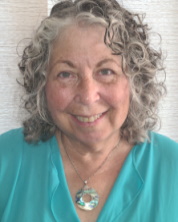
Emily Keshner
Professor Emeritus, Department of Health & Rehabilitation Sciences, Temple University / Chief Research Officer, GraceFall, Inc., Received 2022
Dr. Emily A. Keshner is Professor Emeritus in the Department of Health and Rehabilitation Sciences at Temple University and Chief Research Officer of GraceFall, Inc. She served as Chair of the Department of Physical Therapy and Director of Research Strategy in the College of Health Professions and Social Work at Temple University. Over the course of her career she has been a physical education teacher, a Physical Therapist, and a neuroscientist. Her research focused on assessing human-virtual environment interactions as a window to identifying multisensory integration processing in individuals with neurological disorders and aging. She has performed both intact animal research and translational human research, and pioneered the use of virtual reality technology to study the impact of perception on posture and balance. She developed the first laboratory in the USA, the Virtual Environment and Postural Orientation (VEPO) laboratory, to study human motor control. She has an interdisciplinary approach to research and built a team of collaborators that included bioengineers, biomechanists, computer scientists, and neuroscientists. Her research and mentees have been supported by grants from the National Institutes of Health (NIH), National Institute on Disability, Independent Living, and Rehabilitation Research (NIDILRR), and the National Science Foundation (NSF). Dr. Keshner was a founding member of the International Society of Virtual Rehabilitation (ISVR) and served as its first president from 2009-2012. She has been an active member of ISPGR since the conference in Portland, Oregon in 1992 and served as a board member from 2005-2012 and as President of ISPGR from 2012-2014.
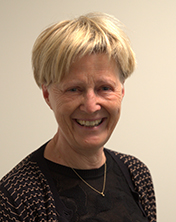
Alice Nieuwboer
KU Leuven, Received 2023
Alice Nieuwboer is a full professor in the Department of Rehabilitation Sciences at KU Leuven (Belgium). Coming from a clinical background as a physical therapist, she now leads a sizable and collaborative research lab for rehabilitation in Parkinson’s disease (PD) (PRO-lab). Her team has made several original contributions to gait and motor control research in Parkinson’s disease (PD), addressing which deficits underlie freezing of gait (FOG). Alice runs several clinical trials in collaboration with international partners, investigating whether digital mobility outcomes derived from free-living gait can measure freezing and if FOG can be helped with cueing and split-belt training.
All Publications: http://lirias.kuleuven.be/cv?Username=U0014581
website: www.PRO-labo.be
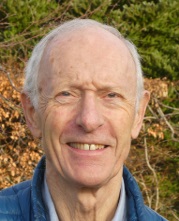
Rolf Moe-Nilssen
University of Bergen, Received 2019
Rolf Moe-Nilssen, PhD, is professor emeritus at the Faculty of Medicine, University of Bergen, and holds degrees in business administration and in physiotherapy. In a previous career he initiated and edited for 10 years the first journal on exercise and physical activity in Norway. His research has had a focus on understanding locomotor control, and he was a pioneer in developing and applying body worn sensors in the analysis of balance and gait. His unbiased autocorrelation approach to gait variability and asymmetry is now widely used in laboratory and clinical research. He was a partner and steering group member in the EU thematic network, ProFaNE, on falls prevention, and an advisory board member in the EU research project PreventIT. He is frequently invited to serve as an opponent at PhD dissertations in Norway and abroad, to give lectures on locomotor control, on method evaluation, and on physical activity. He has a personal interest in physical activity in general and in cross country skiing in particular. He has been a member and presented at ISPGR meetings since 2001
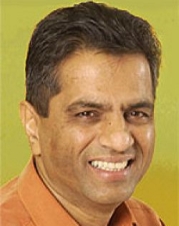
Aftab Patla
Posthumously Awarded, Received 2014
Dr. Aftab Patla passed away on January 29, 2007. He was a valued member of the International Society of Posture and Gait, and a Professor in the Department of Kinesiology at the University of Waterloo. Dr. Patla earned a B. Tech in Electrical Engineering from the Indian Institute of Technology (1975), a M.Sc. Eng. in Electrical Engineering from the University of New Brunswick (1978) and a Ph.D. in Kinesiology from Simon Fraser University (1982). During his academic career, he served as Associate Editor of the journal Gait & Posture, Executive Editor of the Journal of Motor Behaviour, President of the Canadian Society of Biomechanics, President of the International Society of Posture and Gait Research, and on the Grant Selection Committees of Natural Sciences and Engineering Research Council of Canada and Medical Research Council.
Highly accomplished very early on in his career, Dr. Patla was known for his innovative research and thinking outside the box. His research provided new insights into how locomotion is generated and controlled in humans. He published over 200 scientific papers and used both experimental and modeling techniques to provide insight into important problems related to gait and posture. ISPGR presents two student poster awards, previously sponsored by Northern Digital Inc, at its World Congress in his honour.
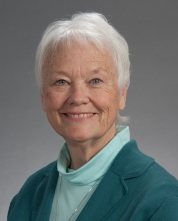
Anne Shumway-Cook
University of Washington, Received 2019
Anne Shumway-Cook, PT, PhD, FAPTA is a Professor Emeritus in the Department of Rehabilitation Medicine at the University of Washington, Seattle, Washington. While fully retired now, her past research focused on understanding the physiologic basis for balance and mobility disorders in neurologic and geriatric populations, and the translation of this research into best clinical practices related to assessment and treatment of balance disorders. She published extensively, and with Dr. Marjorie Woollacott co-authored the textbook Motor Control: Translating Research into Clinical Practice. Her clinical practice focused on treatment of adults with balance and mobility impairments; she helped to develop a number of hospital and community evidence-based fall prevention programs.

Marjorie Woollacott
University of Oregon, Received 2015
She is the co-author, with Dr. Anne Shumway-Cook of the textbook for health care professionals, titled: Motor Control: Translating Research into Clinical Practice, which is in its 4th edition. Her research as been funded by the National Institutes of Health and the National Science Foundation for the past 31 years and she has published over 180 peer reviewed research articles in the area of motor control and rehabilitation. She has been the keynote speaker at conferences in the North and South America, Europe, Australia and Asia and performed research at the Max Planck Institute in Berlin, the CNRS in France and Umea University in Sweden. She graduated magna cum laude from the University of Southern California and is a member of Phi Beta Kappa. She received the Senior Scientist in Motor Development award from NASPSPA and was President of the International Society for Posture and Gait Research.
